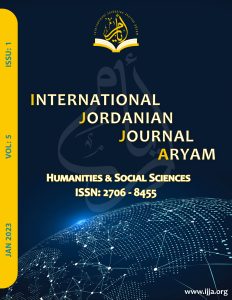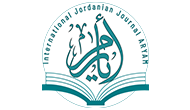Received: 11-6-2019 Revised: 15-06-2019 Accepted: 06-09-2019
Abstract: The Mongols are considered one of the human nations that brought about great and important changes in Islamic history, as well as causing panic and terror to all the countries that affected them, because after it was just a small tribe moving from one region to another in search of water and pastures, to the extent that they called it the Mongols for its weakness, it became an empire It ruled most of the countries of the Islamic world during the seventh and eighth centuries AH (the thirteenth and fourteenth centuries AD), and it removed the Abbasid caliphate in its entirety. Things that may have an impact on the behavior of the individual and groups, positively or negatively, and govern his behavior in his dealings with other members of his society, and then what he does in terms of customs, customs and traditions, inspired by something known by parents and grandparents, to become a certain approach that has become a departure from it Undesirable work, and this approach can be traced through the paragraphs of this research, which comes at the forefront with what is known as the Mongolian living systems.
Keywords: Mongols, Al-Barouji, Al-Gamiz, Al-Aqt, Port, Hunting.
DOI: https://zenodo.org/records/10513088
IJJA is a Humanities and Social Sciences publishing journal committed towards providing a platform to outstanding scientists and researchers to exhibit their findings for the furtherance of Humanities and Social Sciences.
The International Jordanian Journal, Aryam Journal of Humanities and Social Sciences (IJJA) (ISSN print: 2710-3005), (ISSN Online: 2706 – 8455) welcomes high quality contributions investigating topics in the fields of Humanities and Social Sciences .
![42cd5crossreff[1]](https://aijj.org/wp-content/uploads/2023/04/42cd5crossreff1.jpg)
![6357copenaccsess[1]](https://aijj.org/wp-content/uploads/2023/04/6357copenaccsess1.png)
![97aa6road[1]](https://aijj.org/wp-content/uploads/2023/04/97aa6road1.jpg)

